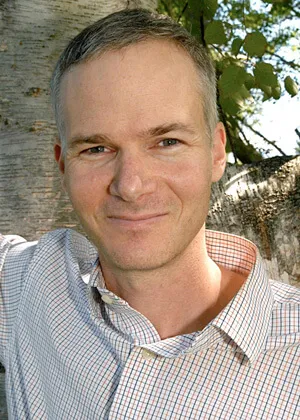Professor Austin Troy moved to the University of Colorado-Denver this past summer 2013 to join the faculty in the College of Architecture and Planning. He remains an Adjunct Professor in the Rubenstein School and an affiliate in UVM’s Gund Institute for Ecological Economics.
"Austin was a force of nature in the Rubenstein School, bringing in major new grants, training talented graduate students, and providing his students with rich, real-world policy and planning examples drawn from his research," says Jon Erickson, Interim Dean of the Rubenstein School. "Denver is lucky to have such a gifted teacher and scholar."
Austin is now an Associate Professor in the Department of Planning and Design which houses the Master’s of Urban and Regional Planning program, made up of about 120 students. He teaches a course on environmental management for planners and landscape architects. In the course, he focuses on wildfire management in the urban-wildland interface zone along Colorado’s Front Range, which encompasses the state’s largest cities and population. Austin will also teach a course on development of cities and their environmental impacts and one on advanced GIS methods.
He is taking a lead role in developing a new research and teaching initiative focused on regional sustainability. He is on the committee that runs UC Denver’s GIS lab, known as the FAST Lab, and is in charge of his department’s GIS certification program.
It hasn’t taken Austin long to build up a number of new research projects in Denver. They include work on assessment of the benefits of urban tree canopy in the Denver area, fire-safe zoning in the urban interface, wildfire fuels treatment prioritization methods, and watershed management for municipal water supply in fire prone ecosystems, among others.
Austin was a full-time faculty member in RSENR since 2001. He maintained a secondary appointment in the UVM Computer Science Department, served as director for both the RSENR Spatial Analysis Laboratory and UVM’s Transportation Research Center, and was a fellow in the Gund Institute.
He is principal and co-founder of Spatial Informatics Group, LLC, an environmental consulting firm in operation since 1998. He also served for four years as a planning commissioner for the city of Burlington.
Austin is also co-principal investigator of the Baltimore Ecosystem Study, one of the National Science Foundation’s two urban Long-Term Ecological Research projects, for which he has analyzed socio-economic factors associated with urban tree cover, vegetation, and parks, including the relationship between crime risk and vegetation. Other research projects addressed land use-transportation models to simulate future urban growth and transportation patterns for policy evaluation, new methodological approaches for classifying land cover from high resolution imagery, analysis of environmental determinants of property values, impacts of hazard zone designation on property markets, and characterization of forest fragmentation in exurban areas, among many others.
He has published dozens of articles and book chapters and authored the book The Very Hungry City (Yale Press, 2012) about urban energy consumption and ways to reduce the urban energy footprint. His book received accolades from The Huffington Post, Vermont Governor Peter Shumlin, and former New Jersey Governor and EPA Administrator Christine Todd Whitman.
Jarlath O’Neil-Dunne who succeeded Austin as director of the Spatial Analysis Lab, says, “Austin has a brilliant mind and a wonderful sense of humor. I will deeply miss his presence on campus, but look forward to our continued collaborations in his new capacity.”
